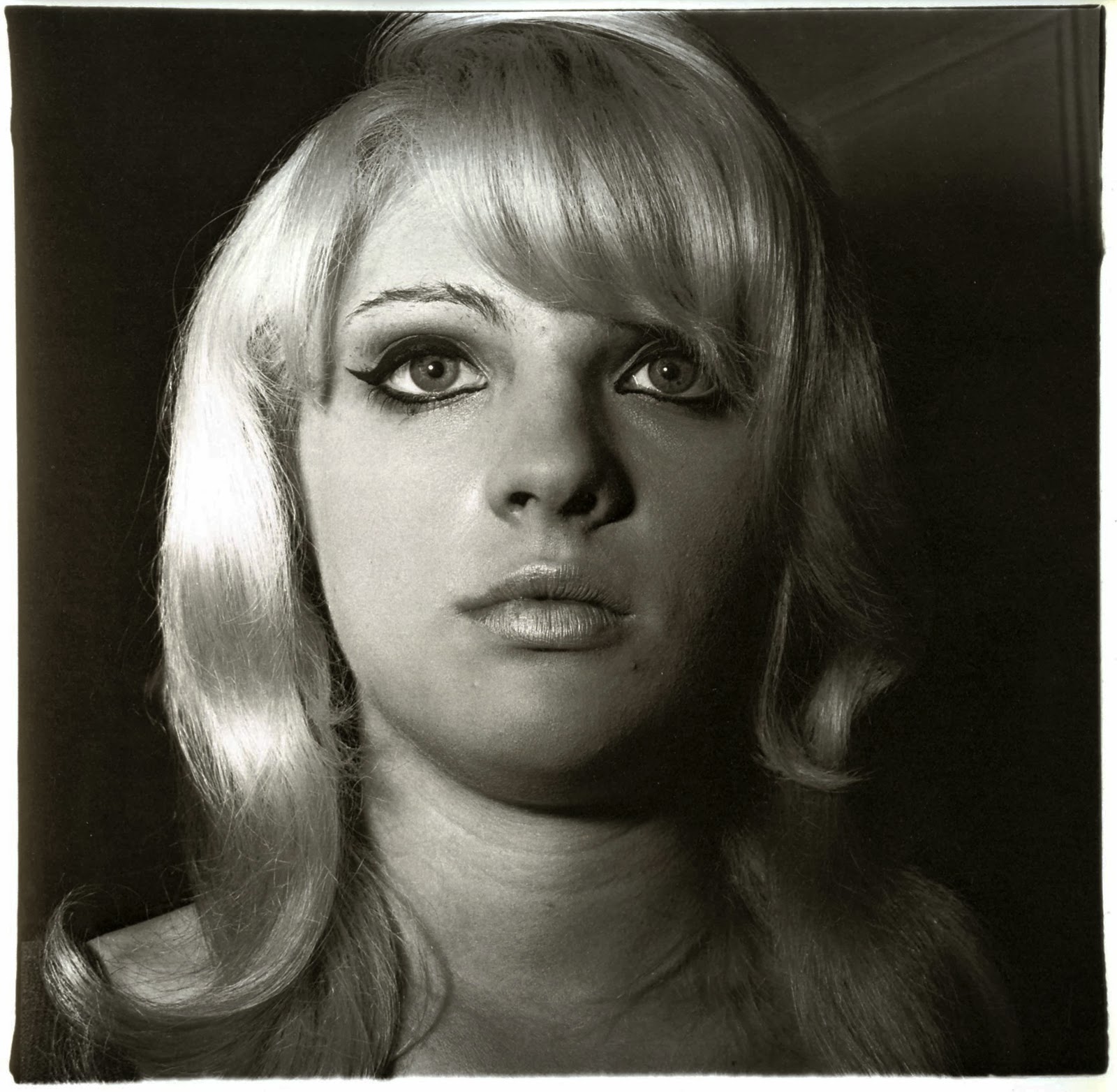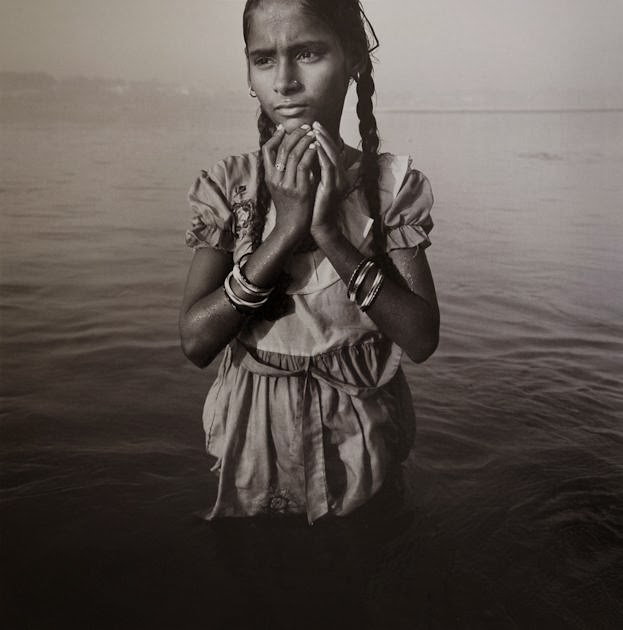Today we will be talking about inspiration. Here is the gist of what I'll share about the work that has informed mine over the years. I'll be showing the bleary eyed students 100 images, some of which I'm including here.
 |
| My Sister Playing Pool, c. 1963 |
Believe it or not, I started taking pictures when I was 2½. What inspired me then? Certainly there were pictures around me: billboards, magazine covers, our 8mm family movies, pictures in books, drawings and paintings hanging in the houses of friends and family, etc. but back in 1957 there was not the bombardment of images there is today. It was a much quieter time visually, and I think I probably got my inspiration simply by discovering and carefully considering the things around me: my toys, my friends, my family and sights I saw on family vacations.
I took my camera almost everywhere and used its viewfinder
to frame and record my world. I obviously took great pleasure in making time
stand still and then, investigating those moments over and over again once the
pictures were developed and printed. So, discovery and documentation were my
early inspirations. Turning an ordinary moment into something special and maybe
even monumental gave me a sense of control and creativity. I think I ended up
with a fuller understanding of my childhood world by making pictures of it.
I learned how to develop my own pictures when I was in
middle school and in high school I built a darkroom in our basement.
Photography itself had become my inspiration.
The first picture I remember truly knocking me out was
Identical Twins by Diane Arbus. I was 18 years old and had just headed off to college.
The image was on the cover of her book; I think I saw it in the bookstore on
campus. Once I bought a copy, I could barely turn the pages, because I couldn’t
believe there could be possibly more images that powerful and strange and breathtaking.
What struck me? Honestly, I think part of it has to do with
the fact that these girls resembled pictures I’d seen of my mother,
grandmother, great aunts and even pictures of me as a young girl. I saw myself
in them. If I used my imagination,
I could invent a story about them that was similar to mine. I felt a kinship to
them.
Arbus thrived on going to new places, putting herself in new
situations, feeling uncomfortable, getting to know people she probably wouldn’t
meet if it weren’t for her camera. She believed that most of us would never see
many of the things she photographed if it weren’t for her pictures. She was
fascinated by people, especially those who carried some kind of physical or
psychological burden. What was Arbus telling us about herself that she felt a
need not only to photograph these people, but also become their friends? You’ll
hear words like voyeurism, exploitation, disturbing, unsettling and tragic when
people talk about her work, but from the first time I saw them, these pictures
inspired me with their formal beauty, their starkness, their secrets and their
unflinching honesty. I thought they were intimate and brave. I was inspired by
the way the subjects trusted her and revealed themselves to her.
There are two other photographers who have greatly inspired
me: Helen Levitt and Mary Ellen Mark.
Helen Levitt is best known for the quiet, lyrical images she
made on the streets of New York City in the 1930’s and 40’s. I have always been
inspired by her tender and witty approach and her ability to formally structure
an otherwise chaotic or messy scene. I got to meet Helen shortly before she
died at the age of 95, and she told me that taking good pictures involves LUCK!
For years she roamed the streets, mainly in Spanish Harlem, waiting to come
upon scenes to photograph; she had nothing to do with making them happen and she
basically felt that she was simply in the right place at the right time more
often than not. She thoroughly enjoyed capturing moments that unfolded before
her. I am inspired by her sense of wonder and discovery. Because of her Helen
Levitt’s pictures, I truly believe in the magic of image making. Her work has taught
me to look around very carefully and closely, but mostly, it has taught me to
be open to what is in front of me, to trust my intuition and to be willing to
take a chance on the subtle beauty and poetry that surrounds me.
Mary Ellen Mark inspires me in yet other ways. She has
portrayed - both journalistically and in her own personal projects homelessness - drug addiction, gypsies, circus performers and
prostitution, among other things. Her style is direct and often formal, but she
manages to skew the frame or use the edges in such a way as to make the images
slightly unsettling. She believes that reality is always extraordinary. Like
Arbus, Mary Ellen is interested in people on the fringes. She has always felt
an affinity for people who can’t seem to catch a break. She is inspiring to me
because she believes it’s important to acknowledge their existence and to give
these people a voice. Her pictures represent a celebration of the human
condition… something I aspire to accomplish with my own work.
So these three women inspired
me early on and continue to inspire me today… each in a different way. One
thing they all have in common is the ability to elevate something ordinary to the extraordinary. This, in a
nutshell, is probably the way they have inspired me the most. Ultimately, I think
knowing and studying their work has pushed me to try to become the best
photographer I can be – to have a diligent work ethic, to learn how to speak
with my own voice and to honor and celebrate the human condition. It’s true
that many of my pictures, especially my early work, bring their pictures to
mind. In preparing this presentation, I took the time to look back at several
of my own bodies of work to see if I could easily find nods and references to photographs
these incredible women have made. I was pleasantly surprised by what I found.
I’m going to scroll through some of those I pulled, and you can see for
yourself how the lessons I’ve learned from Arbus, Levitt and Mark have woven
their way into the tapestry of photographs that I call mine.
Diane Arbus
Helen Levitt
Mary EllenMark
and me















































3 comments:
These are wonderful, Gloria! Marti
Fascinating. I can definitely see the influence of the women you chose in your work as well. However, your work is still distinctively yours. JR
I hope your students know how lucky they are.
- Susan
Post a Comment